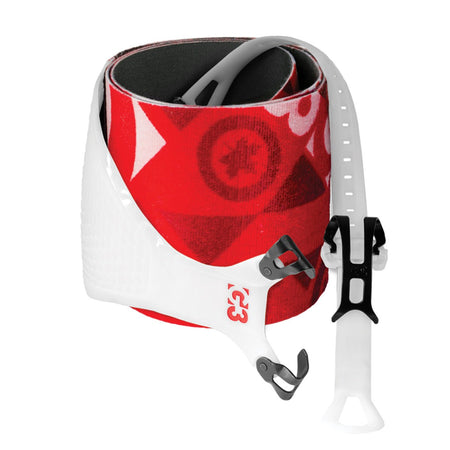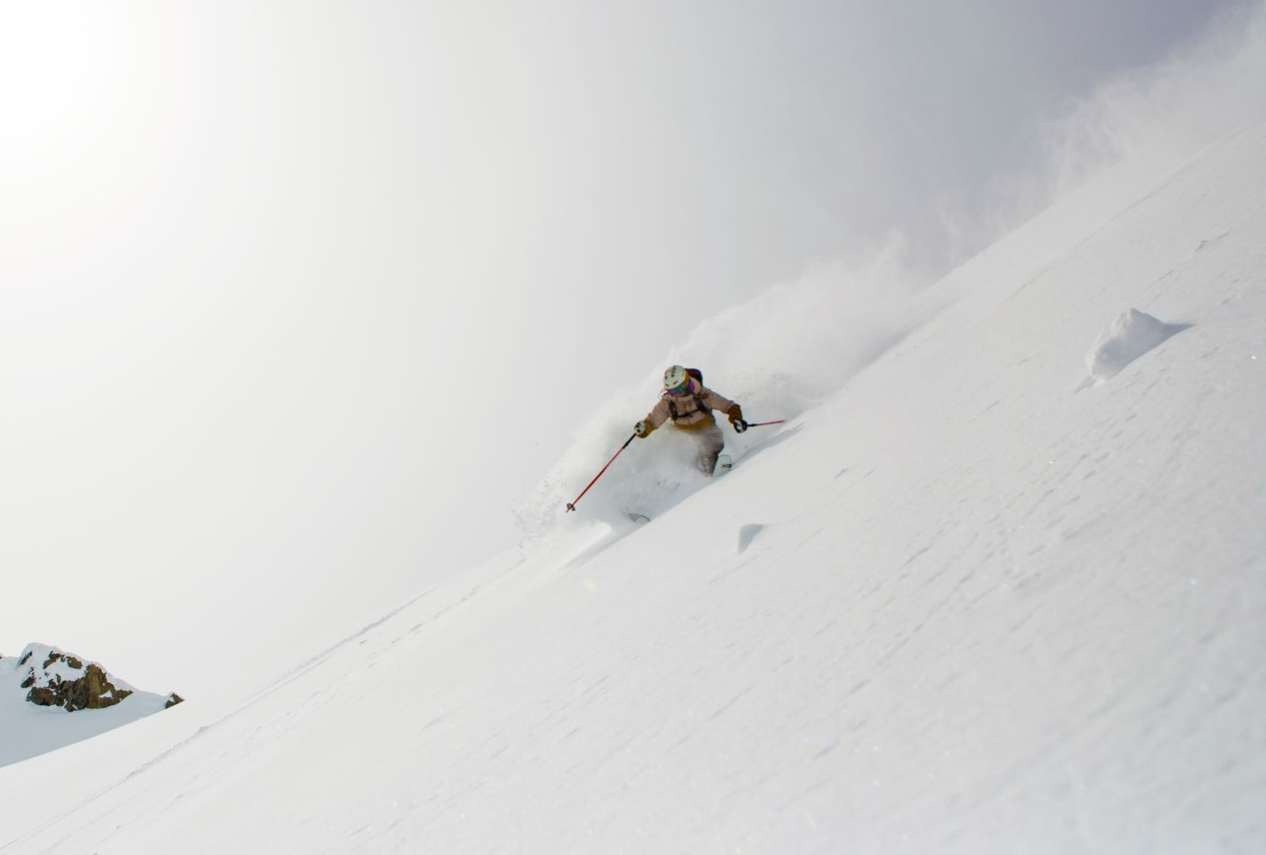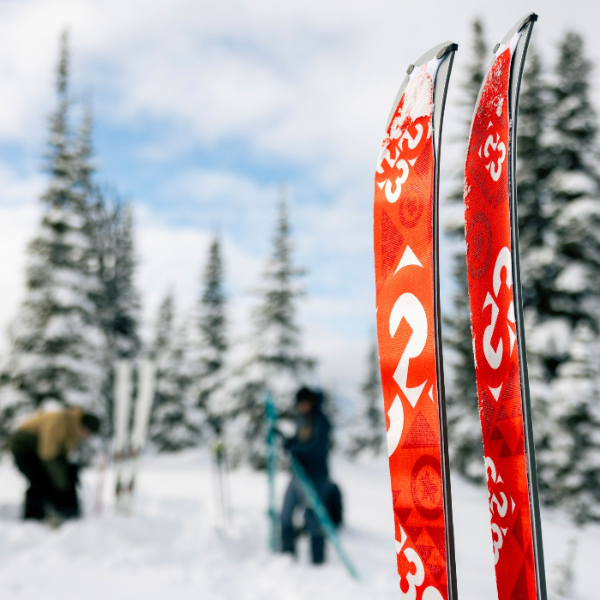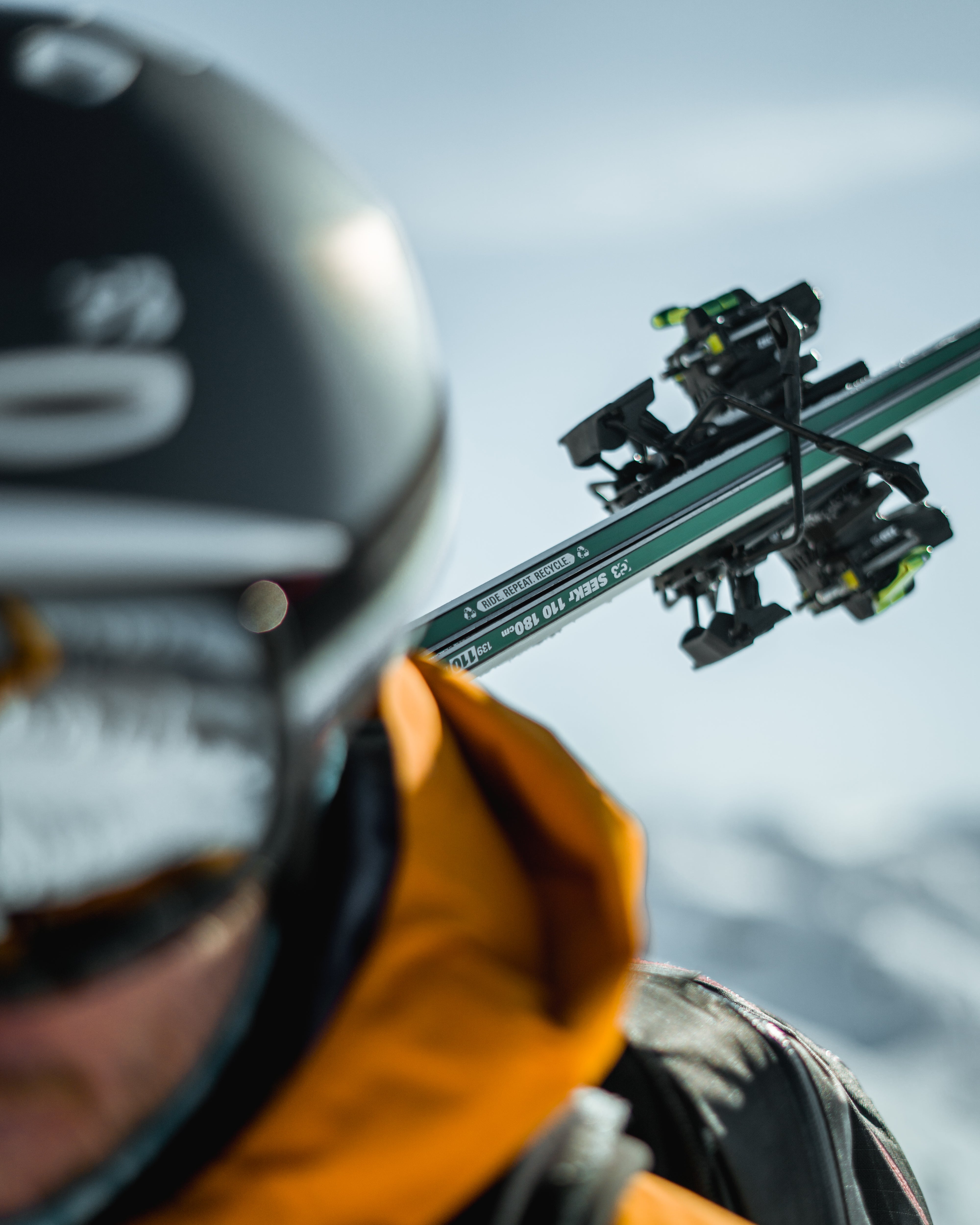
While the shovel, beacon and probe are considered the holy trinity of backcountry essentials, the workhorse partner—along with skis and boots—is the skin. You can curse yourself for forgetting a probe or a sandwich, but if you don’t have skins, you’re simply not going skiing. Unlike safety tools, skins require a little more attention. Care and maintenance go a long way in having a positive backcountry experience.
If you’re a seasoned backcountry skier, you’ve undoubtedly had a skin nightmare, the Herculean clumping of snow that builds upon a drenched skin, or the ineffective glue, which swishes and sways, and doesn’t adhere to the ski. It might not be on par with a shark attack, but it’s arguably one of the most loathsome experiences to have on an otherwise beautiful day of ski touring. There are two two simple words that come to mind with relation to a solid skinning experience: clean and dry.
Keeping the glue on your skins clean is the single most important aspect of skin maintenance and longevity. Dirt, snow, ice, pine needles, any contaminating element, all compromise the life and performance of climbing skins. When attaching skins to skis, always clear off any snow, moisture or other possible contaminant from the base of your skis. In the middle of winter, when snow is usually drier, this is easier to do than in Spring, when snow temps fluctuate and transitions happen over melted out tree exfoliates, such as pine needles, moss, pitch and dirt—all of which can shorten the skin’s overall lifespan.
For any location and all conditions. Universal nylon plush material for durability and versatility. Optimal balance of grip/glide/weight/durability. The stiff material of the ALPINIST+ tip...
ALPINIST+ UNIVERSAL Climbing Skins
After a day of ski touring, hang the skins to dry. Leaving them to soak overnight in the back of your pack doesn’t help the cause either. Make sure to dry them out in an area where there isn’t dust, pet hair or other detritus floating around, e.g., don’t leave them to dry overnight in your woodworker studio.
Most dependable skins, like G3, are sold with hydrophobic waterproofing qualities that keep the skin dry for better day in/day out grip and glide. When skiing in the spring or in wet snow conditions, skins can still get wet and freeze up, or clump with snow despite having solid waterproofing. Anyone who’s experienced this humbling phenomenon never forgets. Though G3 skins provide substantial waterproofing in their skins, we also recommend treating our skins with after market soft wax or sprays designed to reinforce skin fibers with a hydrophobic coating, which not only keeps them drier, but eliminates the weight of potentially collected water and snow off your skin. It will simply climb better and glide more easily.





